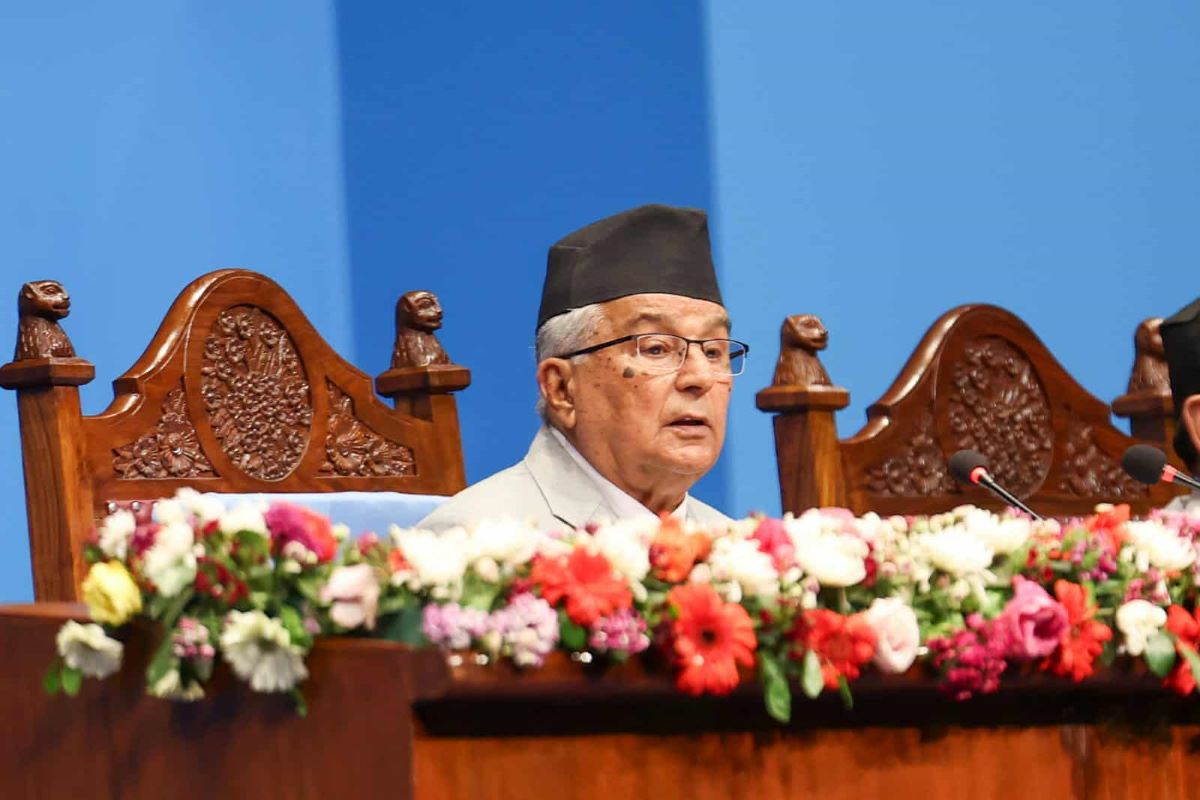
Kathmandu: President Ram Chandra Paudel presented the government’s plans and priorities for the fiscal year 2025/26 on Friday during a joint session of the House of Representatives and the National Assembly, outlining major reforms in infrastructure, taxation, energy, digital services, and environmental conservation.
Addressing the Parliament, President Paudel announced that the government will review all ongoing and planned infrastructure projects.Those found impractical or lacking financial feasibility will be shelved or cancelled. He emphasized that previous government projects will be reprioritized, with timelines aligned to the current parliamentary term.
The government is also preparing a comprehensive tax reform aimed at promoting industrial growth, attracting investment, and enhancing national competitiveness.
The President stated that a taxpayer-friendly system would be introduced through improved administration and increased integration of digital technology.
To modernize the financial sector, a digital bank will be established, and efforts will be made to promote cashless transactions.
According to the President, the government plans to expand digital infrastructure and amend related policies and laws to support a digital economy. More government services will be offered through the Nagarik App and faceless public service delivery systems.
In the energy sector, the government will develop reservoir-based and multipurpose hydropower projects using appropriate financing models to address dry-season energy demand and ensure power security.
Remittances will be mobilized through the “People’s Hydropower Programme,” and regulatory provisions for cross-border electricity trade will be introduced.
President Paudel also announced the beginning of green hydrogen production in Nepal, alongside the promotion of electric appliances across households, agriculture, industries, and transportation. The government will also begin blending petrol with bioethanol to reduce dependency on fossil fuels.
In the forestry sector, the government aims to increase local production of forest-based goods to boost supply and employment. A restructuring of the Chure Conservation Plan into the National Chure Conservation Project has also been announced.
On education, President Paudel said the School Education Bill will be passed in the current session to bring legal and policy reforms aimed at improving quality and accessibility. He reiterated the government’s commitment to ensuring all children receive basic education by 2084 BS.
Environmentally, Euro 6 vehicle emission standards will be introduced to combat air pollution. Other priorities include watershed protection, land restoration, and insurance-backed relief for human-wildlife conflict victims.
The address also touched on political and administrative themes. The President reaffirmed the government’s dedication to protecting democratic values, countering anti-constitutional activities, and promoting stability through dialogue and cooperation.
Earlier in the day, Prime Minister KP Sharma Oli handed over a copy of the speech to the President. The session was attended by top officials including the Vice President, former prime ministers, diplomats, and business leaders. The Parliament building was decorated with national flags, and the President was welcomed with a ceremonial guard of honour.
As mandated by Article 95 of the Constitution, the President presents the government’s policies in a joint parliamentary session. Debates on the policy document will take place from May 5 to May 11, followed by discussions on the budget’s priorities starting May 14. The full budget will be presented on May 29.
Comments